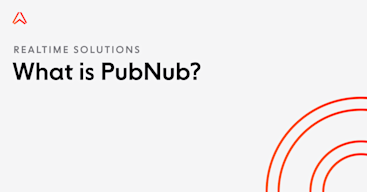- Topics
- /
- Realtime technologies
- /
- Sendbird pricing: What you need to know
Sendbird pricing: What you need to know
Sendbird is a dedicated chat as a service product that focuses on helping you build chat, as well as notifications and voice and video conversations, into your applications. Whether you’re building small-scale applications or scaling up to enterprise-grade projects, understanding Sendbird’s pricing model is essential to managing costs effectively. Below, we break down Sendbird’s pricing structure and highlight key considerations to help you determine if it’s the right fit for your needs.
How Sendbird pricing works
Sendbird operates on an MAU pricing model, meaning that Sendbird bills based on the peak number of users in a given month. Sendbird offers a chat solution which tends to be pricey - at small scales this might not be an issue, but could become a problem as your user base grows.
Here’s a detailed breakdown of Sendbird pricing features, and the cost-optimization features that could lead to a better deal for your data:
Pricing breakdown
Sendbird's offering | Why is this important? | |
|---|---|---|
Pricing model | MAU Sendbird has an MAU pricing model, in which you buy a package based on your monthly active users. Messages within a package are unlimited, MAU is based on the peak of the month, and peak connections are capped at a percentage of MAUs (see pricing tiers below). | The pricing model should align with your project's real consumption and usage patterns in order to be cost-effective. If consumption peaks in a month, the pricing model should look at holistic consumption patterns instead of charging you only for the peak. |
Free plan | ⛔ No. Sendbird doesn’t offer a free plan, but does offer a free trial of its Pro plan (no overages allowed). | With a free plan, you can test the service’s functionality and compatibility with your project before committing to a paid plan. |
Pricing tiers | Free trial: Up to 1,000 Monthly Active Users (MAU) with access to all Pro features for a limited time. Enterprise: Custom pricing for over 100k MAU. Includes all Pro features plus data export, dedicated servers option, and priority support | Find the right pricing tier for your scale. |
Per-minute pricing | ⛔ No. Sendbird charges based on peak monthly active users (MAU). This means that costs can rise significantly in months that experience even a brief spike in traffic, and can lead to overpaying on used resources. | Per-minute pricing ensures that you are only paying for what you use, with the most granular costs possible. |
Enterprise plan | ✅ Yes. | An enterprise plan ensures that you can support your realtime service as it scales out. |
Sendbird’s cost-optimization features | Why is this important? | |
|---|---|---|
Server-side batching | ⛔ No. Not available, leading to potentially higher message delivery costs. | Server-side batching queues and sends individual messages sent at the same time in batches, which significantly optimizes message delivery costs. |
Delta compression | ⛔ No. Not available, leading to potentially higher bandwidth costs. | Delta compression on messages sends only the changes between the previous and the current messages (in updates, for example), which significantly reduces bandwidth costs. |
Key considerations for Sendbird pricing: is it right for you?
While Sendbird does come well-equipped for chat use cases, its pricing comes with a few downsides:
No free plan: While Sendbird offers a free trial, this does not allow for overages.
Expensive: As mentioned above, Sendbird’s fully-featured offering comes with a price tag. At the time of writing, 25,000 MAUs cost a minimum of $1,1199 per month. This might not be appropriate for you if you don’t anticipate using all the features of Sendbird, or are looking to build out your own UI elements.
MAU pricing model: An MAU pricing model may suit projects with low or consistent resource needs, such as small-scale realtime chat applications with stable traffic and low peak concurrent usage; prices with an MAU model are predictable in those use cases. However, if your traffic is volatile and subject to high peak concurrent usage, then you lose that predictability: MAU billing can penalize brief or unforeseen peaks in traffic, meaning that you have to provision for usage peaks, and the majority of the resources you pay for go unused.
Alternatives to Sendbird for realtime experiences
There are lots of alternatives to Sendbird for building realtime experiences, including Pusher, Amazon API Gateway, and Azure SignalR. Their strengths depend on your specific use case. Only one or two providers offer top reliability and scalability, however. If you’re looking for something that gives you more precise control over costs and provides highly fault-tolerant infrastructure, it’s worth exploring Ably.
Why consider Ably?
Ably offers some unique advantages that set it apart:
Cost control: With usage-based billing, Ably makes sure you only pay for what you use. This is especially helpful if your traffic tends to fluctuate—no surprises on your bill.
Cost optimization features: Ably’s server-side batching and message compression means that you can lower costs on data delivery, saving you even more on your usage bill.
Multi-region high availability: Ably’s global infrastructure is designed to keep things running even if there’s an issue in one region. That’s a big step up from single-region setups.
Granular control over QoS: Need messages delivered in a specific order or with a certain level of reliability? Ably’s got you covered.
Volume discounts: The more you use the platform, the lower your unit costs become, which keeps Ably affordable, even at extreme scale.
High scalability & availability: Built and battle-tested to handle millions of concurrent connections at scale.
Sign up for a free account today to explore Ably’s features, and visit our pricing page to get a sense of how affordable we can be for you.
Recommended Articles

Guide to PubNub: What it is, how it works and when to use it
PubNub is a platform for building realtime applications. Discover what it does, how it works, its use cases, limitations, and suitable alternatives.

Liveblocks alternatives: Top 5 competitors to consider in 2024
A round-up of the best alternatives to Liveblocks for adding collaborative features - from avatar stacks to component locking - in-app.

Stream (GetStream) alternatives: 5 competitors to consider in 2024
Discover the best solutions you can use instead of Stream to build web-based and in-app chat experiences.